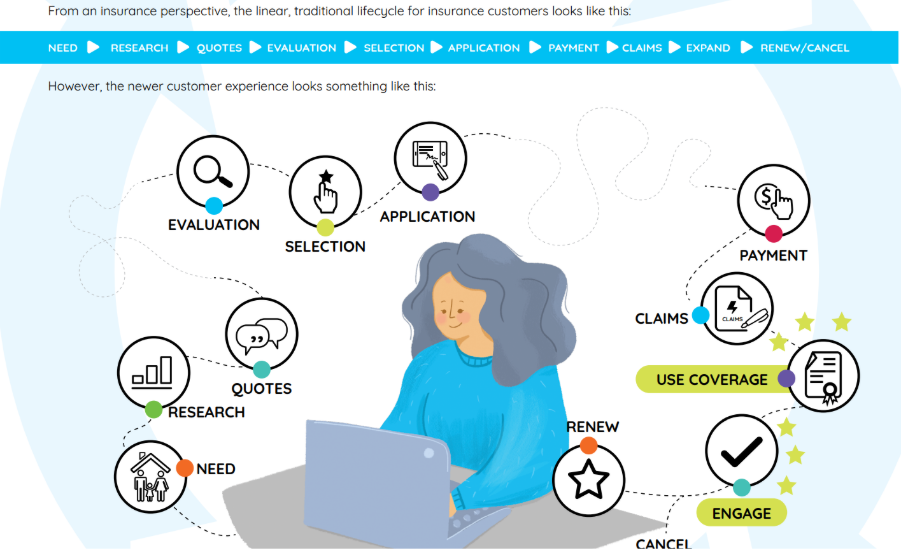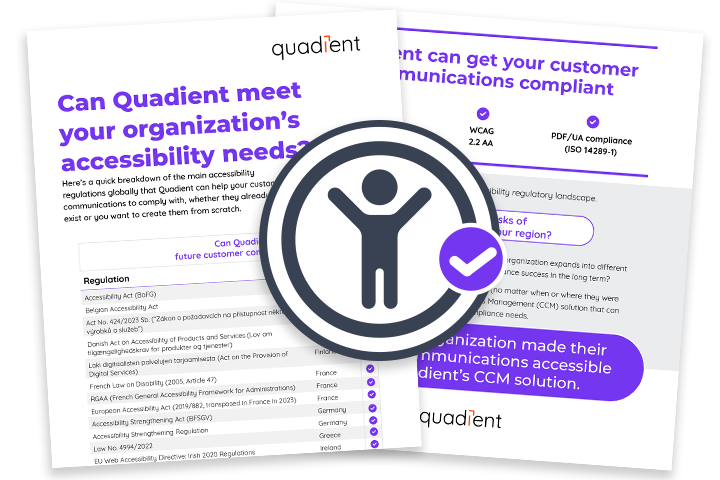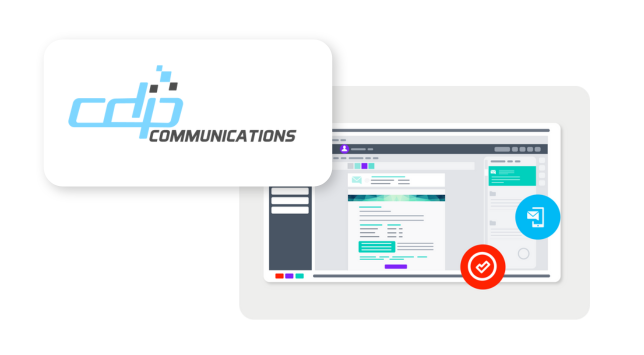
Fraud in business processes, especially Accounts Payable (AP), remains a significant financial and reputational threat for organizations. During a recent webinar hosted by Quadient Accounts Payable, in collaboration with Encoursa, industry experts shared insights on mitigating fraud risks, leveraging automation, and implementing robust AP controls. The session served as a masterclass for professionals seeking actionable strategies to protect their organizations against fraud.
The webinar was led by Liz Briggson, CPA and co-founder of Encoursa, and Evan Guilbault, Senior Sales Development Representative (SDR) at Quadient. Their expertise and interactive session provided participants with vital guidance and tools to safeguard their AP systems.
Key Learning Objectives
Liz Briggson opened the session by outlining its goals:
Identifying common exploitation points in AP processes.
Recognizing business practices to mitigate fraud risks in accounts payable.
Liz clarified that the session offered general guidance on fraud prevention rather than focusing solely on specific AP controls. This broader perspective invited attendees to rethink how fraud prevention fits into their organizational strategies.
A Dive into Fraud Statistics and Trends
To highlight the urgency of fraud prevention, Liz shared eye-opening statistics from the Association of Certified Fraud Examiners (ACFE) and FBI Internet Crimes Commission:
Organizations lose approximately 5% of their annual revenue to fraud.
Median losses per fraud case are $145,000, with average losses soaring to $1.7 million.
Cybercrime losses are increasing dramatically, underscoring the evolving landscape of occupational fraud.
Liz emphasized that occupational fraud typically lasts about 12 months before being detected, making proactive strategies critical for minimizing exposure.
Addressing AP Fraud Schemes and Exploitation Points
Liz provided an overview of common AP fraud schemes such as business email compromise (BEC), phishing, and fictitious vendors. She recounted real-world fraud cases, like the Houston Independent School District scandal, where a network of collusion led to bribery, personal benefits, and significant financial losses. Another case involved an AP clerk diverting funds due to the absence of segregation of duties highlighting the importance of internal controls.
Fraud Triangle: Closing the Loop on Opportunity
Liz explained the Fraud Triangle pressure, opportunity, and rationalization and stressed the importance of minimizing opportunities for fraud in AP processes. Business practices that restrict the chances of fraud are key to long-term success.
Practical Tips for Fraud Prevention
Liz shared actionable strategies that organizations can employ immediately:
Bank Detail Change Verification To combat risks from BEC and phishing attacks, Liz advised verifying bank detail changes by contacting vendors through known phone numbers rather than information provided in suspicious emails. This practical step can help organizations avoid costly errors.
Cooling-Off Period Fraudsters often exploit urgency in their schemes. Liz encouraged a cooling-off period for urgent payment requests to allow time for verification and prevent emotional decision-making.
Segregation of Duties A key control is ensuring no single team member has end-to-end access to vendor setup, invoice approval, and payment release. Liz cited cases like the Decor Craft fraud, where an AP clerk misused direct access to company funds due to a lack of segregation.
Vendor Due Diligence Ongoing vendor management, including periodic reviews of dormant vendor accounts and proper approvals, can reduce the risk of fraud. Carefully controlled master data should remain a top priority for organizations.
Technology and Automation Technology plays a pivotal role in fraud prevention. Features like robust audit trails, time-stamped logs, and automated processes reduce the likelihood of fraudulent activities while freeing up accounting teams to focus on strategic tasks.
Enhancing Fraud Detection with Quadient AP
During the session, Evan Guilbault provided a detailed demo of Quadient’s AP automation tool, highlighting features designed to mitigate fraud risks. The software prioritizes:
Efficient Invoice Processing: By streamlining invoice workflows and integrating vendor data from ERP systems, the tool allows accounting teams to focus on reviews rather than routine tasks.
Fraud Detection Mechanisms: Suspicious invoices and payments are flagged and halted automatically, ensuring they don’t slip through unnoticed.
Enhanced Collaboration: Quadient AP supports unlimited, free user access to involve more stakeholders in essential reviews without overwhelming them with information.
Approval Matrix Integration: Multiple approval steps are built into AP workflows to ensure robust oversight and reduce fraud risks.
Evan emphasized how Quadient AP’s features empower organizations to implement critical fraud controls while maintaining efficient operations.
Open Communication and Integrity Culture
Liz highlighted the importance of fostering an open-door culture and leveraging fraud tip lines. According to ACFE data, 43% of fraud cases are detected via tips three times higher than any other method. Liz stressed the need to encourage employees, vendors, and customers to report inconsistencies through accessible tip lines. Transparency, she noted, is essential to creating a culture of accountability.
Conflict of Interest Reviews
Annual conflict of interest disclosures are another vital tool for maintaining organizational integrity. Liz advocated incorporating these reviews into HR systems to ensure seamless processes. She emphasized the value of identifying potential conflicts of interest, such as personal relationships with vendors or undisclosed financial ties, to strengthen operational compliance.
Real-World Case Studies: Lessons in Fraud Prevention
Throughout the session, Liz cited several real-world examples that illustrated the consequences of lax AP controls. For instance, she shared the City of Milwaukee fraud case, where a minor alteration to an email domain led to a $461,000 fraudulent payment. Despite the recovery of funds, the case underscored the importance of vigilance when dealing with financial transactions.
Another striking example involved an IT director invoicing their consulting company under shady circumstances. An internal audit eventually exposed the fraud. Liz stressed that regular reviews and clear documentation are crucial for identifying and preventing such activities.
Key Takeaways from the Webinar
Understand fraud vulnerabilities—Leverage tools and strategies to close gaps in AP processes.
Implement technology controls—Use automation solutions like Quadient AP to create audit trails, flag suspicious transactions, and empower your accounting team.
Encourage a culture of transparency—Promote open communication, make fraud tip lines accessible, and conduct routine conflict-of-interest reviews.
Focus on prevention—Invest in robust business practices such as segregation of duties, vendor monitoring, and cooling-off periods.
Educate your team—Ensure employees understand how attacks like phishing and BEC occur, and equip them with tools for verification.
Conclusion
Fraud prevention in AP isn’t just about implementing reactive measures it requires building a proactive, strategy-driven culture that leverages technology, streamlines controls, and prioritizes transparency. The insights shared by Liz Briggson, CPA, and Evan Guilbault, Senior SDR, during this Quadient webinar highlight how organizations can set themselves up for success in the fight against AP fraud. By addressing gaps in processes, encouraging open communication, and automating workflows, businesses can protect their reputation, financial assets, and long-term sustainability.
For more information on AP automation solutions and fraud prevention strategies, connect with Liz and Evan on LinkedIn or visit Quadient Accounts Payable for additional resources. Let’s work together to stop fraud before it starts.
Book your demo today and take the first step toward fraud-proof AP processes.







